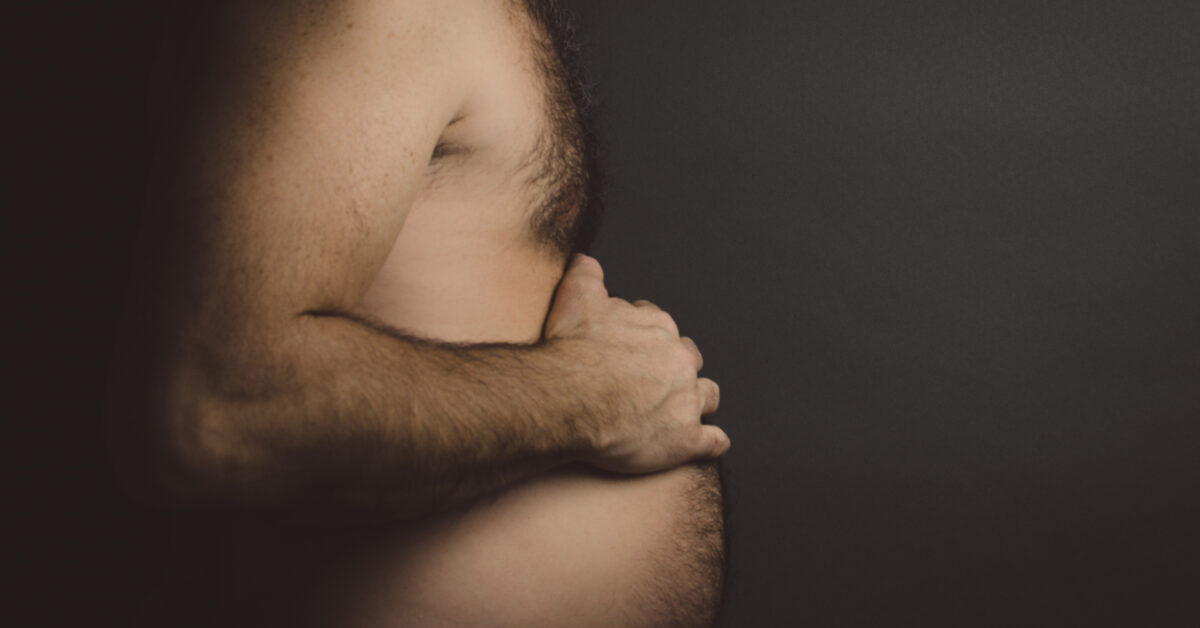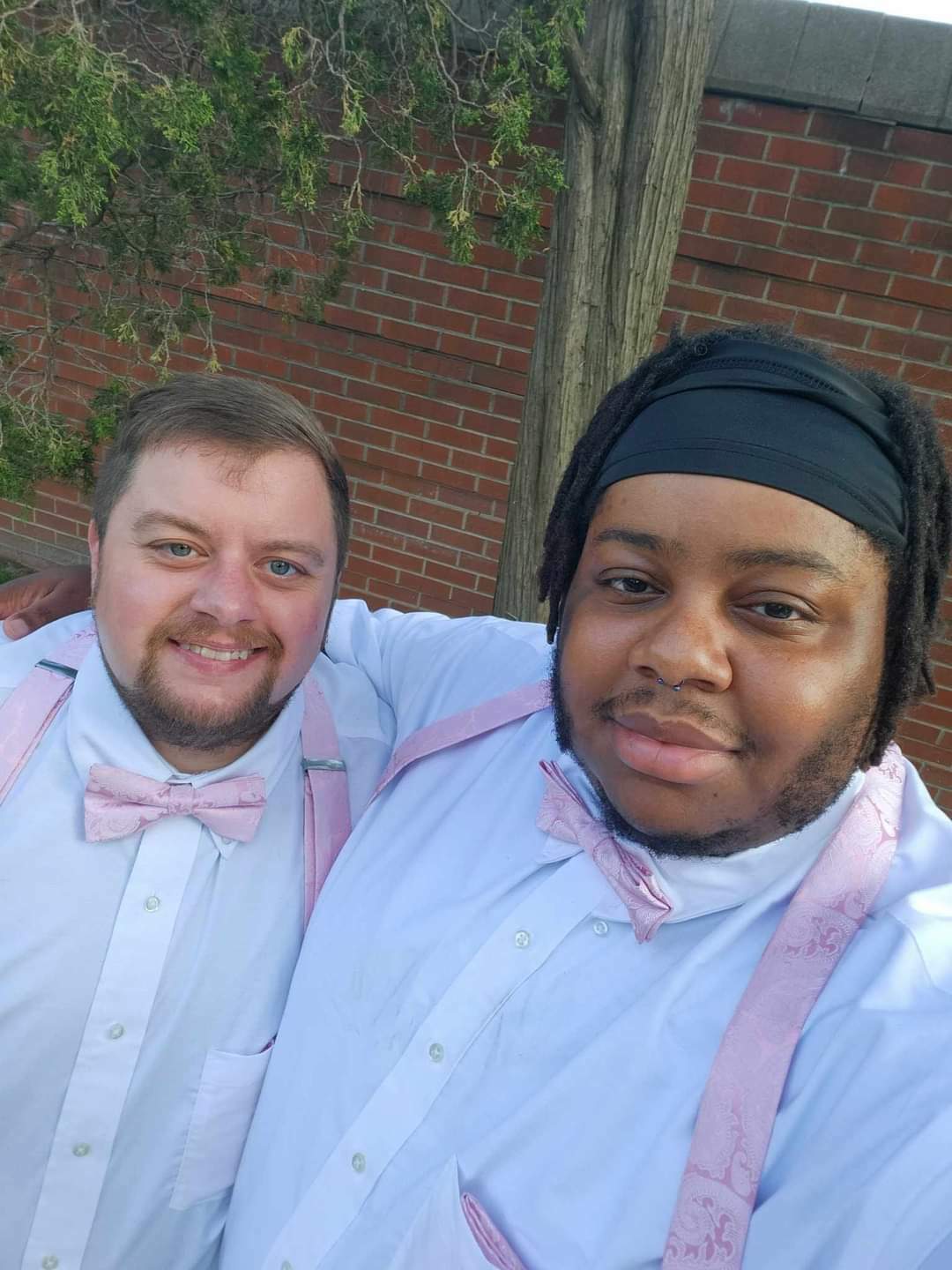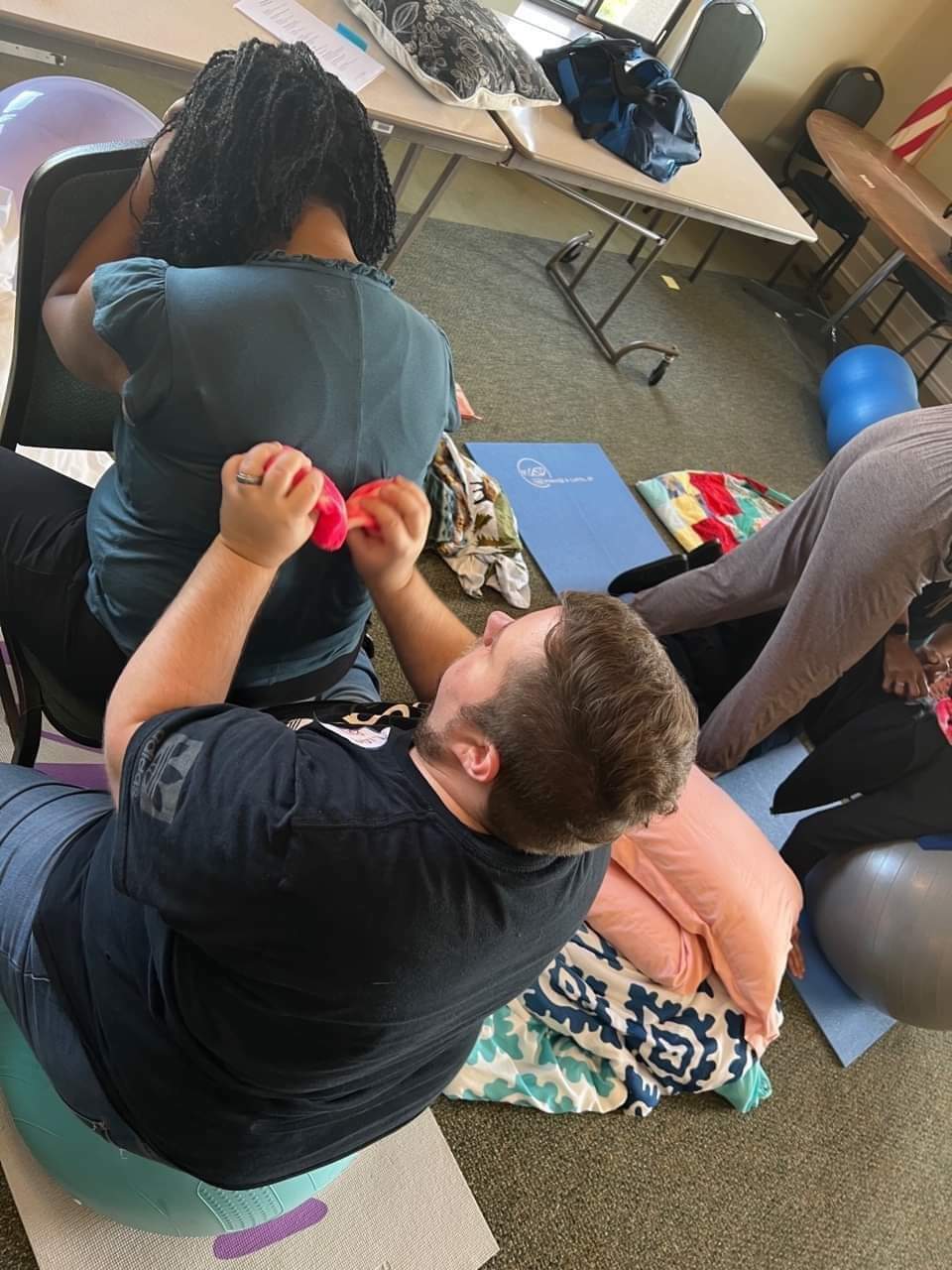This Trans Doula Wants to Change the Narrative Around Queer Childbirth
Liam Wolf talks birth, inclusion and the realities of being a white, cisgender-passing male in a traditionally non-male field

Liam Wolf wants to normalize the idea that men can, and do, give birth. And at a time when a certain Arkansas governor is banning the terms “pregnant people” and “chestfeeding” from her state’s official documents, it’s more important than ever that folks like Wolf are pushing an affirming rather than regressive narrative when it comes to bearing children.
Known as The Trans Doula, Wolf is at the forefront of a queer-centered doula movement.

“My heart, being a trans man, is with the LGBT community because often people face discrimination, especially in a hospital setting,” said Wolf, who is willing and able to work with any individual, couple or poly family; nonbinary folks; seahorse dads/parents; marginalized communities; and those with illness or disability. “I'm very passionate about advocating for trans and gender nonconforming people,” he said, whether in the hospital, birth care center or one’s own home.
And even at home, where people would likely hire a midwife, Wolf can assure that not only is the birth plan carried out smoothly, but that pronouns are respected and the pregnant person has all of their needs met at a time when things can happen quickly.
A birth doula is a trained professional who provides physical, emotional and informational support to a pregnant person before, during and shortly after childbirth. Unlike midwives, doulas do not provide medical care.
Wolf said there are a “bazillion” reasons he sought training as a doula. As an EMT in a hospital, Wolf had a particular interest in working in labor and delivery.
“I'm also a survivor of a rare disease,” Wolf said. “So when that happened, I wasn't able to really work the same way that I used to. I got involved more in social services type things and I worked for a trans health organization. I saw that a lot of our younger clients needed support around getting pregnant, giving birth, and that they were nervous about navigating the hospital system.”
Wolf was able to secure a scholarship, and recently completed training through an MDHHS program to provide doula care for Medicaid recipients in order to increase healthy birth outcomes.
Wolf’s passion for advocating for the queer community has a long history. As a trans teen, Wolf was not accepted by his family and subsequently kicked out. He faced abuse and the return of a childhood illness.
“And so that journey, experiencing health disparities because of being underinsured also led me to have an interest and passion in helping folks like me who didn't have the access to the care they needed,” Wolf said. His heart’s work is making sure that people have the care they need regardless of income, a driving force that stems from experiencing adversity including growing up extremely impoverished in a family “with a lot of issues.”
Addressing health disparities and removing barriers to care are all part of Wolf’s mission as a doula. To do that, he considers things like whether the pregnant person has transportation to their appointments and whether they are safely housed. Wolf’s services are available in-person in Detroit (expanding soon to other areas) or virtually and include accompanying an individual to doctors appointments to translate medical terminology and providing educational materials. Wolf also supports partners and loved ones, can provide assistance applying for health insurance and food and income assistance offered through federal and state programs, and will give hands-on support during labor and provides baby feeding support. While doulas cannot replace midwives or doctors, Wolf is thinking of applying to medical school in the future.

Although birth doulas of the past may not have had to concern themselves with their clients’ car insurance or applying for government programs, the purpose of doulas remains largely the same.
Doulas have a long and rich history, beginning before industrialization and modern medicine and were common in indigenous and Black communities. “This was a generational practice that was passed down to women and also generally just two spirit people as far as assisting during the birth with physical comfort measures,” Wolf said. Later, when nurse midwifery schools opened, traditional doulas were driven away from practicing due to racism.
With rates of infant mortality and morbidity of birthing persons on the rise, doulas saw a resurgence starting around 50 years ago as pregnant people sought alternatives to what had become traditional hospital births.
“We see that going as far back as when Black and indigenous midwives were researched, they had better birth outcomes than even when births were attended by a male physician,” Wolf said. “Especially when our hospitals now might not have time and ability to give individualized care to each patient that is in labor, doulas are there to provide physical comfort measures as well as emotional support and totally focus on the holistic well-being of the birthing person.”
Angelina DeAngelo, who did not work with Wolf, gave birth to her now-10-year-old twins at home with two doulas. And while she said there were many reasons she felt uncomfortable with a traditional OB/GYN, it didn’t have to do with being gay.
“It was more of their traditional way of medicine and birthing your baby on your back," she said. "And just listening to my doctor and how it was going to go and [it] just was frightening to me. They want you to be in a nightgown and it's limited movement. You can't drink, you can't eat. It was that whole experience.”
Doctors and most nurses aren’t there for comfort — their role is to get the baby out, DeAngelo said. Her need for a doula was also necessitated by a lack of family support.
DeAngelo shares her story because she says many folks are uninformed. She found the experience with a doula both empowering and spiritual and hopes this knowledge will encourage others if it’s right for them.
“Both of my doulas were queer and that definitely helps as well,” DeAngelo said. “It’s a different mindset. It just seems more accepting whether you are [queer] or not just because they're in a different type of group.”
Like DeAngelo, Wolf understands the basic needs for acceptance and comfort in the birthing process.
Yet as a “white, cis-passing male,” Wolf is in a unique position. He wants to ensure his privilege is only used to benefit the client; however, he recognizes that for some, especially trauma survivors, a woman-aligned person may be the better option — and Wolf is fine with that. But it doesn’t sound like the newly minted "Trans Doula" will lack for business.
“I have a couple of people that I know who are trans men that are hoping to give birth in the next year and I look forward to being at their birth when they're able to get pregnant,” Wolf said.
“Wanting children is a human thing,” he continued. “I’m not speaking for all trans men, just for me. The beauty of having the anatomy that I have is that my partner and I want a family and we're able to do that without a whole lot of intervention. My body can just do that. I think it's cool.”









